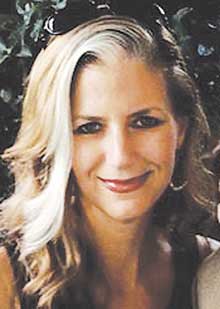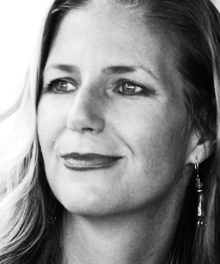 Like so many anxious parents around the state, my sister in Charleston sent her firstborn off to kindergarten last week. On the third day of school, she posted the following mini-diatribe on Facebook:
Like so many anxious parents around the state, my sister in Charleston sent her firstborn off to kindergarten last week. On the third day of school, she posted the following mini-diatribe on Facebook:
So, I didn’t get the memo that we parents weren’t allowed to walk our kindergarteners into school today. I knew they were supposed to meet in the library on day 3, but I thought we could walk them. Not so much. I got abruptly stopped by teachers with walkie-talkies. Wish I had been more prepared and had prepared Ellie (had just finished assuring her I would walk her to the library). The logical part of my brain knows everything will be fine, but a mother’s love is instinctual and sometimes not rational at all. Missing my girl this morning and hoping she found the library. #separationanxiety
Following her post were various comments of support: people explaining the “no parents” rule (“it’s for the safety of the kids; they don’t want too many non-school employees walking around”); empathizing with my sister (“every little snip on the apron strings is painful, though it’s usually harder on the mama than the child”); offering advice (“there’s always homeschooling!”), and so on and so forth.
I chimed in with the following: “Getting used to having a child in ‘big school’ takes a while, and it’s hard. Suddenly, there are all these rules and all this bureaucracy, and it feels like other people are in charge or your child – and you! – and there’s nothing you can do about it. Amelia’s 13, but I still kind of feel this way at the beginning of every school year. It does get easier, though. Hang in there.”
I meant what I said: It does get easier. But I also meant it when I said I still feel this way at the start of every school year. As much as I love learning and admire teachers, and as grateful as I am for public education, there is something deep in my bones that reflexively bristles, that rebels against “the system.” And, as my sister so aptly put it, I think it’s instinctual . . . not rational at all. I hear the phrase “teachers with walkie talkies” and my knee just starts jerking.
I remember when my daughter’s elementary school – and all the elementary schools in Beaufort – got those security check-in machines. No longer could I traipse in, greet the receptionist with a smile, scrawl my name on a piece of paper, then head down the hall to Amelia’s classroom. Now I had to swipe my driver’s license, type in a bunch of info, have my picture taken – always hideous – and wait for the machine to spit out a nametag featuring said hideous picture. It took me a while to master this process and I grumbled under my breath every time I had to do it. Once, on the day of an awards ceremony, I pitched a conniption – almost staged an uprising! – when we parents all arrived at the same time and had to wait in line, going through this routine one by one. (Some folks actually missed part of the ceremony. I was fit to be tied.)
Though the check-in machine was clearly a good thing – a way to keep the children safer – I resented it. I resented it for making the school feel less personal, less warm and cozy. I resented it for being cold and officious, for being . . . well, a machine. Mostly, I guess, I resented it for reminding me that the world is not a safe place for children. Or anybody.
Now that my daughter’s in middle school, I have to get myself “buzzed in” at the front door before wrangling with the check-in machine. The door remains locked until some hapless parent like me shows up, is identified through two sets of windows, then clumsily attempts to open it quickly, while the green light is on. It invariably takes me three tries to sync up with the receptionist at the front desk, which is entirely my fault, not hers.
Again, I’m grateful that my daughter’s school is locked up tighter than a maximum security prison . . . but I wish the phrase “maximum security prison” didn’t float through my head when I think of my daughter’s school. Does that make sense? (Hey, I told you this mother stuff isn’t rational!)
Along with my illogical distaste for school security, I also have an unreasonable aversion to edu-speak. (Is that a word?) Education administrators have their own special language, and I continually try to learn it – I want to understand, I really do! – but it seems to change so frequently that I never get fluent. Every year, there’s a new batch of acronyms and catch phrases being bandied about – a new list of “standards” . . . a new “rubric” . . . a new “program.”
This year, at my daughter’s school Open House, being “data-driven” was the big thing. The administrators are data-driven, the teachers are data-driven, and all the parents and students are encouraged to be data-driven, as well. I have nothing against data – I’m all for it, in fact – but I am naturally wary of any concept that’s suddenly elevated to the heights where “data-driven” currently resides. I also bristle – yep, there I go again – at the notion that my funny, quirky, one-of-a-kind girl-child can be reduced to a set of data. (Even it’s true, I don’t like it. So there.)
But my problem is really not with “data-driven.” I hope it works! Lord knows, we’ve tried everything else. My problem, I think, is with this dense, shifting, acronym-laced jargon that I don’t quite understand and am, therefore (again), left feeling like an outsider in my daughter’s life. Like a mother standing outside two layers of security-grade glass, frantically waving at a receptionist who doesn’t see her, waiting for the green light to flash, I feel shut out. Just like the check-in machine (which, I know, is a good thing!), edu-speak feels cold and impersonal and – okay, I’ll say it – a little bit scary.
Public education, God bless it, is nothing if not a bureaucracy – and there’s just something in me that resists a bureaucracy. I squirm at the very sound of the word.
Who knows? Maybe it’s genetic. My mom’s a libertarian from way back. She was a Goldwater girl.
Near the end of the aforementioned Facebook thread, my sister – who shares my genes and my bureaucra-phobia – ruefully concluded, “I guess I’d better change my attitude, since we have a few more years of this ahead.” (She has a three-year-old nipping at her big sister’s heels.)
“Only if you want free education,” I replied.
At Open House the other night, after gathering en masse in the gym for a message from the principal (that’s where I learned about “data-driven”), we parents got to wander through the classrooms and meet our kids’ teachers. My daughter’s were warm and engaging and each quite distinctive. Her science teacher wears a bow tie and has caged reptiles in his classroom. Her English teacher is effervescent, with a twinkle in her eye and book covers all over her walls. Her geometry teacher wears cornrows and has a new baby son, and her social studies teacher is a newlywed and a stickler for making kids write. (Yes!)
I left Open House feeling much more optimistic and cheerful than when I’d arrived. Behind all the security doors and the check-in machines, behind the standards and the rubrics and the data, there are still teachers. Glorious teachers. And they still speak my language.






